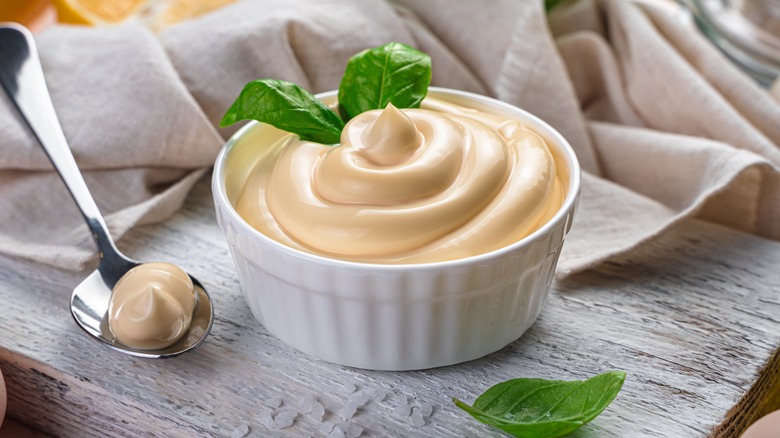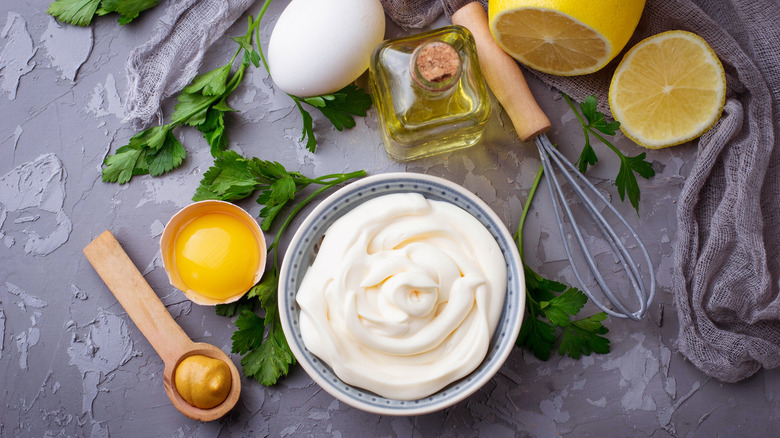Homemade Or Store-Bought Mayonnaise: Which Is Best For Your Kitchen?
Few condiments are quite as polarizing as mayonnaise. But, it may be surprising to some that this creamy, somewhat controversial condiment is made from shockingly few ingredients, which might be reason enough to switch to homemade. Plain mayo typically only uses eggs, oil, and a little acid — typically lemon juice or vinegar. Hellman's Real Mayonnaise contains eggs, soybean oil, and a combination of distilled vinegar and lemon juice concentrate. Thanks to its simple ingredient list, you probably already have everything you need to make homemade mayo on hand.
But the thing that makes mayo sumptuously silky and thick has less to do with the ingredients used and more with the combining method called emulsification. While water and oil tend to separate, when mixed vigorously, the fat molecules of the oil become suspended in water droplets. Mixing the ingredients fast enough to obtain this phenomenon can be challenging for home cooks, so we recommend using an immersion blender or food processor if you want to make mayo at home. Prep and cooking time may be major deciding factors, but they aren't the only things to consider when choosing between store-bought and homemade mayo.
Pros and cons of homemade vs. store-bought mayo
Perhaps the most obvious benefit of store-bought mayonnaise is the fact that it's shelf-stable. This means you can buy it in bulk and easily have a jar on standby. However, even though store-bought mayonnaise contains raw eggs, it's shelf-stable due to preservatives and binders. These additional ingredients can distort the taste of the oil, eggs, and acid. To compare, homemade mayonnaise can last for one to two weeks in the fridge. If you don't mind preservatives, store-bought mayo is very reliable, and you can build recipes around it with ease since the consistency and flavor will stay the same.
While it's convenient to pick up a jar at the store, making mayo is relatively quick and easy, especially with the help of a blender. That said, homemade mayonnaise can still scramble or break if it isn't adequately emulsified, which can be a headache to fix. However, an added benefit of homemade mayonnaise is that you can customize it to your tastes. For instance, you could use only egg yolks and no whites for a thicker, fattier Kewpie-style mayo. The homemade stuff also provides a neutral base for additional ingredients that complement a specific recipe, such as creating a basil pesto mayo to slather on grilled chicken sandwiches. Ultimately, the choice is yours.

